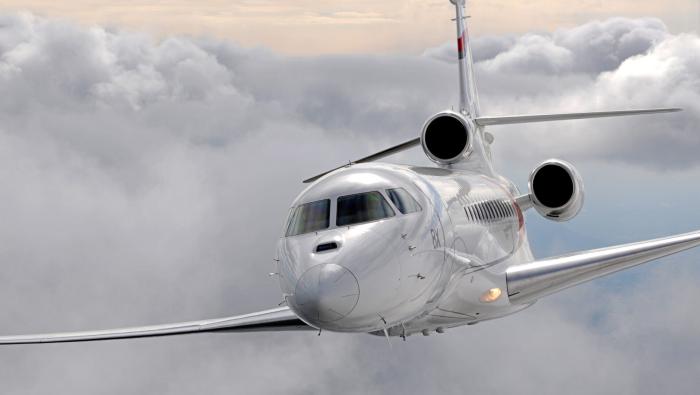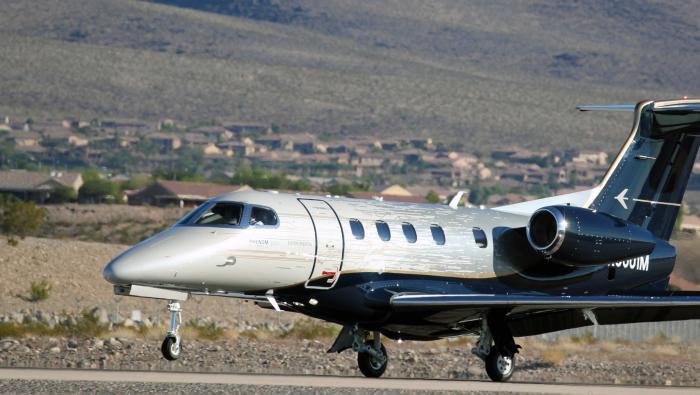Beta Technologies has rolled out the second Alia CX300 electric aircraft from its scaled manufacturing facility in Burlington, Vermont, the company announced on March 4. Later this year, Beta will ship that aircraft off to Norway for a series of flight demonstrations to be conducted by helicopter operator Bristow Norway, a subsidiary of its partner and customer Bristow Group.
Bristow Norway will use the Alia aircraft to ferry cargo between Stavanger Airport and Bergen Airport starting in the third quarter this year, according to Beta. Initial demonstration flights at Stavanger Airport expected to begin in late summer.
The Alia CX300 aircraft heading to Norway this year—registered N214BT—has already received special airworthiness certification from the FAA for day/night VFR/IFR operations. The aircraft will need to log 50 hours of flight time before it can earn the FAA market survey certificate required for demonstration flights and training flights with customers.
Beta expects to obtain FAA type certification for the Alia CX300 electric airplane this year, followed by the Alia 250 eVTOL model in 2026, and EASA is expected to subsequently validate those approvals for commercial operations in Europe. Both versions of the Alia aircraft can carry up to five passengers plus one pilot or 1,250 pounds of cargo. Beta’s CX300 prototype has demonstrated a range of up to 336 nm on a single charge in flight testing, whereas the Alia 250 eVTOL model has a projected range of 250 nm.
Alia Will Fly in Norway’s “International Test Arena”
The Norwegian Civil Aviation Authority (CAA Norway) and Avinor, the country’s state-owned airport operator and air navigation service provider, have been working together for the past year or so on plans to turn Norway into an “international test arena for zero- and low-emission aviation.” Developed in collaboration with EASA, this so-called “regulatory sandbox” would give operators, regulators, and other stakeholders hands-on experience with new types of aircraft, such as electric air taxis, before they enter service.
“We will learn how regulations and frameworks need to evolve to enable new technologies and concepts. Through this, we will build the necessary expertise early on for the solutions of tomorrow,” Lars Kobberstad, Norway’s director general of civil aviation, said in a statement.
“Avinor’s role is to facilitate the infrastructure at airports and make the airspace available for actors who wish to test various zero- and low-emission aircraft in an operational environment,” said Karianne Helland Strand, Avinor’s executive vice president for sustainability, concept, and infrastructure development. “We seek more knowledge about what different technologies and aircraft require in terms of airport facilities and necessary energy supply needs.”
On December 10, CAA Norway and Avinor signed a letter of intent with Beta and Bristow to begin developing a concept of operations for cargo flight demonstrations within that “regulatory sandbox.” Representatives from Beta, Bristow, CAA Norway, and Avinor formalized their flight demonstration plans with a signing ceremony at Bergen Airport on March 4.

Avinor Seeks Charger Bids
In January, Avinor announced a tender competition for electric aircraft chargers that will need to be in place at Stavanger Airport and Bergen Airport before the Alia can begin its demonstration flights in Norway’s test arena. The airport planning agency intends to procure a permanent charging station to be installed at Stavanger Airport by June 1. In Bergen, Avinor wants to rent a battery-powered mobile charging unit to be delivered by August 15.
Beta, which manufactures chargers in addition to its electric aircraft, is competing for that contract. Given that it has already built a nationwide charging network in the U.S. consisting of both permanent and mobile chargers, Beta would appear to be a top contender. However, Avinor has indicated that it might prefer a domestic supplier—while acknowledging that no Norwegian companies are currently producing chargers that meet the requirements.
“Avinor wants to involve the Norwegian supplier industry and get more charging players on board through the test arena project,” said Anders Kirsebom, acting CEO of Avinor. “The electrification of the car fleet in Norway has contributed to the design of many innovative solutions for charging various vehicles by Norwegian players. Avinor hopes to see the same innovative capability in this procurement and that we receive many offers, even though no one has a finished solution today.”
U.S. Coast-to-Coast Flight
Earlier this week, Beta reported that another "production-intent" example of the CX300 aircraft completed a journey from its flight test center at Plattsburgh in upstate New York to Santa Monica Municipal Airport in California. The 3,064-nm trip involved flights in VFR and IFR day and night conditions conducted under special airworthiness certification issued by the FAA.
After leaving Plattsburgh, the CX300 made stops at state and municipal airports in Ohio, Indiana, Arkansas, Missouri, Oklahoma, Texas, New Mexico, Arizona and Nevada en route to California. The electric aircraft's visits sparked considerable curiosity among local people at these airports.
Test pilots Nate Dubie and Noah Ranallo took turns flying the CX300. A small Beta road crew also made the trip to provide maintenance support and log flight data.







